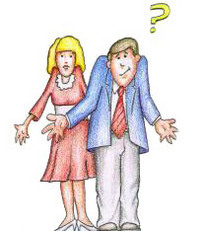Consumer Reports Reveals What Your Car is Telling You When it Whines, Creaks, or Squeals
 |
YONKERS, N.Y., Feb. 3, 2010; When your car thumps, pings, and hisses it's hard to tell if you should take your car to the mechanic or not, so Consumer Reports has identified what noises drivers should turn down the radio for.
The full report appears in the March issue of Consumer Reports, available wherever magazines are sold. The reports are also available to subscribers of www.ConsumerReports.org. Updated daily, ConsumerReports.org is the go-to site for the latest auto reviews, product news, and blogs on breaking news and car buying information.
When you hear a noise that's unusual -- a whine, a creak, or a squeal, for example -- consider it an alert that something has changed. By paying attention to those sounds, you can often catch a minor problem before it becomes a major one. Here's what to listen for:
-- Squealing brakes. If you hear squealing only during braking,
especially light braking, it's probably caused by a vibration at the
brake pads. Squealing doesn't affect your braking performance and,
while it's annoying, it is usually nothing to worry about and can
happen even with new pads. If you hear a similar high-pitched squeal
from the brakes while the car is moving but it stops when you step on
the brake pedal, it can be a sign that your brake pads have worn down
and need changing soon.
What to do. Have a mechanic inspect the brakes. In the case of the squeal during braking, he may be able to apply a lubricant to quiet the vibration.
-- Squeals under the hood. If you hear this while revving the engine or
when first starting it while cold, the noise is often due to a
slipping drive belt. The belt could need adjusting or it could be
glazed (the sides look shiny), which means it requires replacement.
What to do. Have a mechanic look over the drive belts and replace them if necessary.
-- Light rattling in the engine. This might be pinging, which can sound
like tiny marbles bouncing around inside the engine, and usually
occurs while accelerating or climbing hills. It's often due to using
gas with too low an octane rating and can begin occurring in older
engines because of carbon buildup. Severe pinging can damage the
engine.
What to do. Check your coolant temperature gauge. If the temperature is normal, try using premium gasoline. If that doesn't correct the pinging, have the car checked by a mechanic.
-- Rhythmic thumping. If the noise increases and decreases with the speed
of the car, it's probably a tire problem, such as torn rubber in the
tread, a bubble in the sidewall, or a flat spot.
What to do. Have the tires inspected as soon as possible. Torn rubber or a bubble could lead to a blowout, so get new tires. A flat spot is annoying but not serious.
-- Hissing beneath the hood. It's most likely a vacuum leak, caused by a
cracked or disconnected vacuum hose. Your engine could also be running
or idling rough and the "check engine" light could be on.
What to do. If it's a disconnected hose, you may be able to reconnect it yourself. Or take the car to a mechanic.
-- Grinding sound from brakes. This means you've waited too long to
replace your brake pads, your car is unsafe to drive, and your repair
bill has just jumped to another level. The brake pads have worn
completely through and are grinding against the brake rotor, which
probably also needs to be replaced.
What to do. Stop driving and have the car towed to a mechanic.
MARCH 2010
Consumers Union 2010. The material above is intended for legitimate news entities only; it may not be used for commercial or promotional purposes. Consumer ReportsŪ is published by Consumers Union, an expert, independent nonprofit organization whose mission is to work for a fair, just, and safe marketplace for all consumers and to empower consumers to protect themselves. To achieve this mission, we test, inform, and protect. To maintain our independence and impartiality, Consumers Union accepts no outside advertising, no free test samples, and has no agenda other than the interests of consumers. Consumers Union supports itself through the sale of our information products and services, individual contributions, and a few noncommercial grants.


